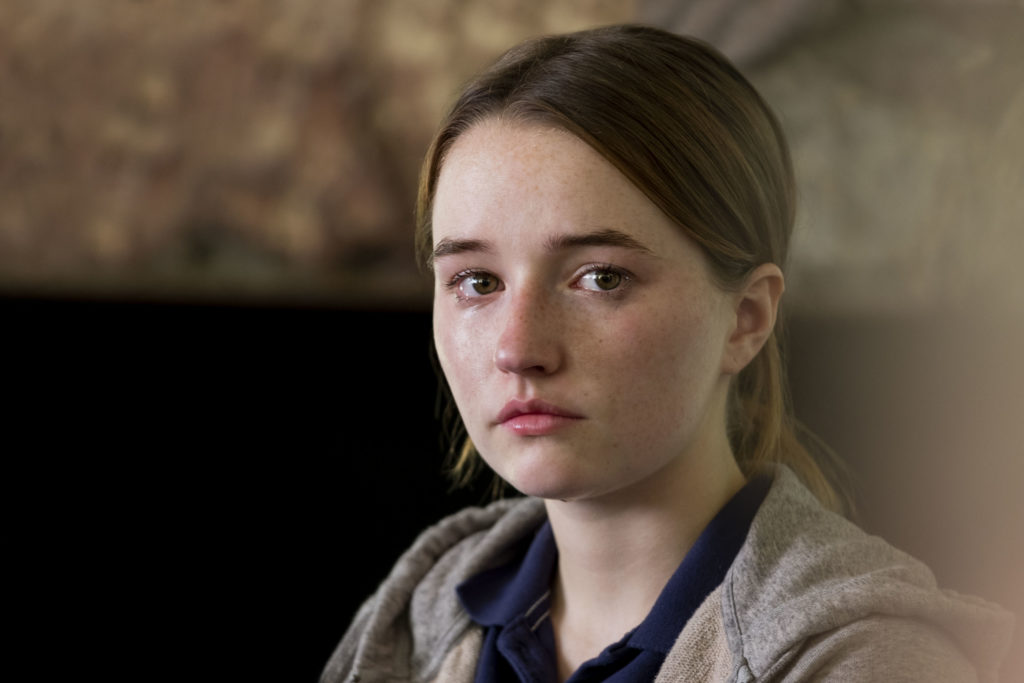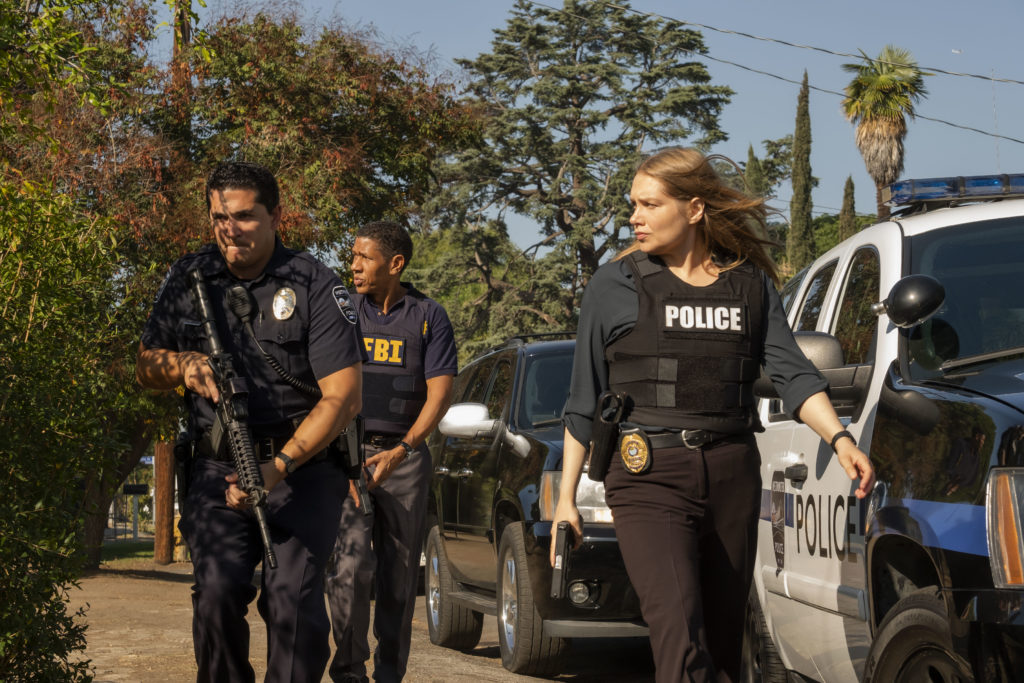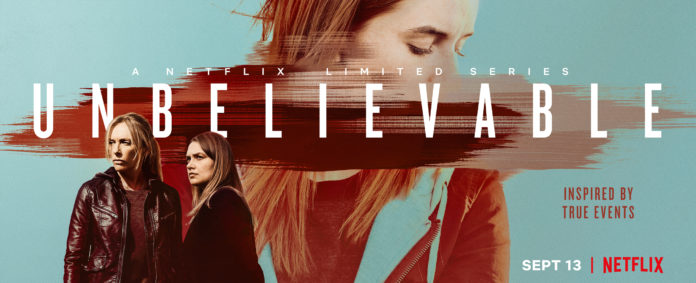The Netflix miniseries Unbelievable – to be released on 13 September – is a jarring look at what happens when rape survivors are not believed and what it means for justice. It follows several rape survivors along with the detectives trying to get justice for them. FATIMA MOOSA watched the show and these are her thoughts.
I had been waiting for the release of the show since reading the compelling summary of it. Inspired by real events, the show centers around a teen who reports and then retracts her reported rape. Meanwhile, two detectives investigate evidence that could reveal the truth.
However, just weeks before the release of the show, the spotlight in South Africa shined on gender-based violence once more. Gender-based violence is never far from the lived reality of many South African women. It was the rape and murder of Uyinene Mrwetyana however that pushed the conversation into the mainstream.
Once more with these events, the government, men in South African society, and even the criminal justice system showed they don’t have any solutions or answers to gender-based violence.
It was all these thoughts that were running through my head as I sat down to watch the show.
Background
The show is inspired by events from the Marshall Project and ProPublica Pulitzer Prize-winning article, An Unbelievable Story of Rape, and the This American Life radio episode, “Anatomy of Doubt.” Through a year-long investigation, The Marshall Project reviewed many legal documents and interviewed many people who suffered real trauma. The article came out in 2009. The investigation followed a serial rapist and a “young woman convicted of lying about what turned out to be a very real, harrowing assault.” The investigation showed how law enforcement authorities fail victims and survivors of sexual assault and even charge them criminally for coming forward.
It was this investigation that inspired the story of Unbelievable. The woman, Marie at the heart of investigation – who has charged spoke about the show. Marie said. “I don’t want it to happen to someone else like that,” she said of being falsely accused of lying.
The Plot
The show begins in 2008 with Marie. She is part of the Rise Up programme which helps foster children transition out of foster care. She tells the police she was raped by a masked intruder. However, as the police investigate, they seem to indicate that Marie is lying about the rape. She confesses she made up the story and lied about the rape.

The show then switches to 2011 where Detective Karen Duvall is investigating a case of rape. This rape case echoes what happened to Marie. However, at this point, the show already shows what happens when the law enforcement personnel has a victim-friendly approach. The detectives who question Marie are probing and abrupt with her. Duvall is soothing, caring and attempts to make the victim feel safe. She then finds out that there is another rape case in another state which echoes her one. Duvall and Detective Grace Rasmussen join together to figure out the case.
The show might seem like your typical cop drama show. There’s the case and the detectives are trying to figure it out. Yet it goes beyond that. The show is concerned with what happens to women when they report rape and how the system is geared to not believe victims.
Themes
This show looks at the work that goes into investigating a rape. This includes the police officers who are the first responders to the paramedics and the detective who have the responsibility of finding the perpetrator. Unbelievable shows how bureaucracy, patriarchy, rape culture, and a bad institutional culture all come together to hinder the case being solved.

In the second episode, the laboratory results for one of the victims’ is delayed. The reason is that there was a mixup at the laboratories. Then there is a fact that there is a lack of detail being inputted in the system about rape cases. This makes Duvall and Rasmussen’s work more difficult when they are trying to find other similar cases. Then there is lack of coordination between police departments in different areas to share information. This is just the tip of how the huge issues that hinder finding justice for rape victims.
The show also goes into some of the other issues that affect victims of gender-based violence. At one point a university student comes forward to say he has information about a potential suspect. He says there is someone at his university who gets girls drunk and then has “sex” with them. Duvall responds to say the person rapes them. The student is shocked at the use of the word rape. This shows the “bro culture” that exists. While the student thinks it’s wrong what the other student is doing, he hesitates to call it rape.
Then there is the search for the rapist. While trying to figure it out, Rasmussen and Duvall go to the FBI for help. The FBI guy says perhaps the rapist might get sloppy so they’ll be able to catch it while Rasmussen says he might get more violent. It is Duvall who delivers important words. She says they need to make sure it doesn’t happen again. Fighting gender-based violence isn’t only about justice, but also about prevention.

Final Take
The show could be triggering for victims and survivors of sexual violence. However, the directors seem to have taken great care to ensure the rape scenes aren’t shown in great detail. There is a lot of sensitivity provided. The way Unbelievable tackles this and more (as discussed above) makes this show a must-watch. In this time of #MeToo and #AmINext the show is important. It shows how flawed the system is. But it also shows what changes can be made when the criminal justice system from the police to lawyers believe victims.









